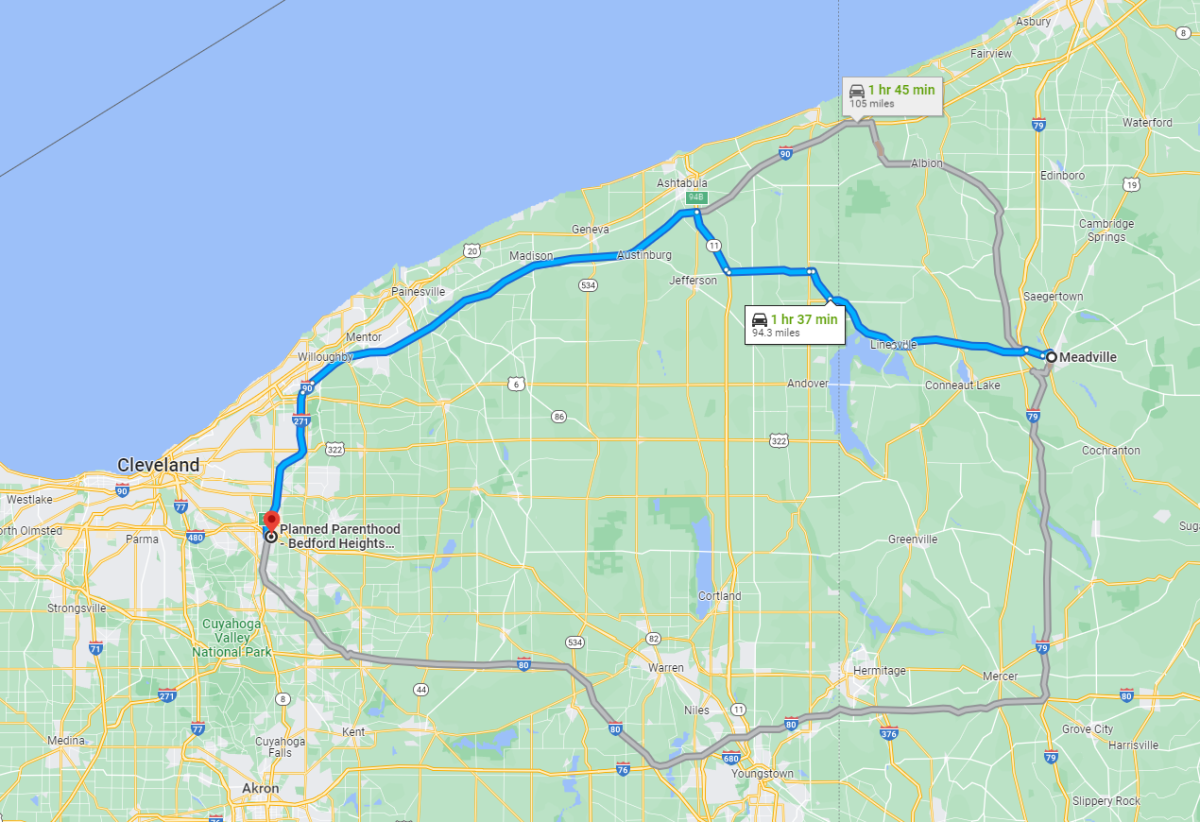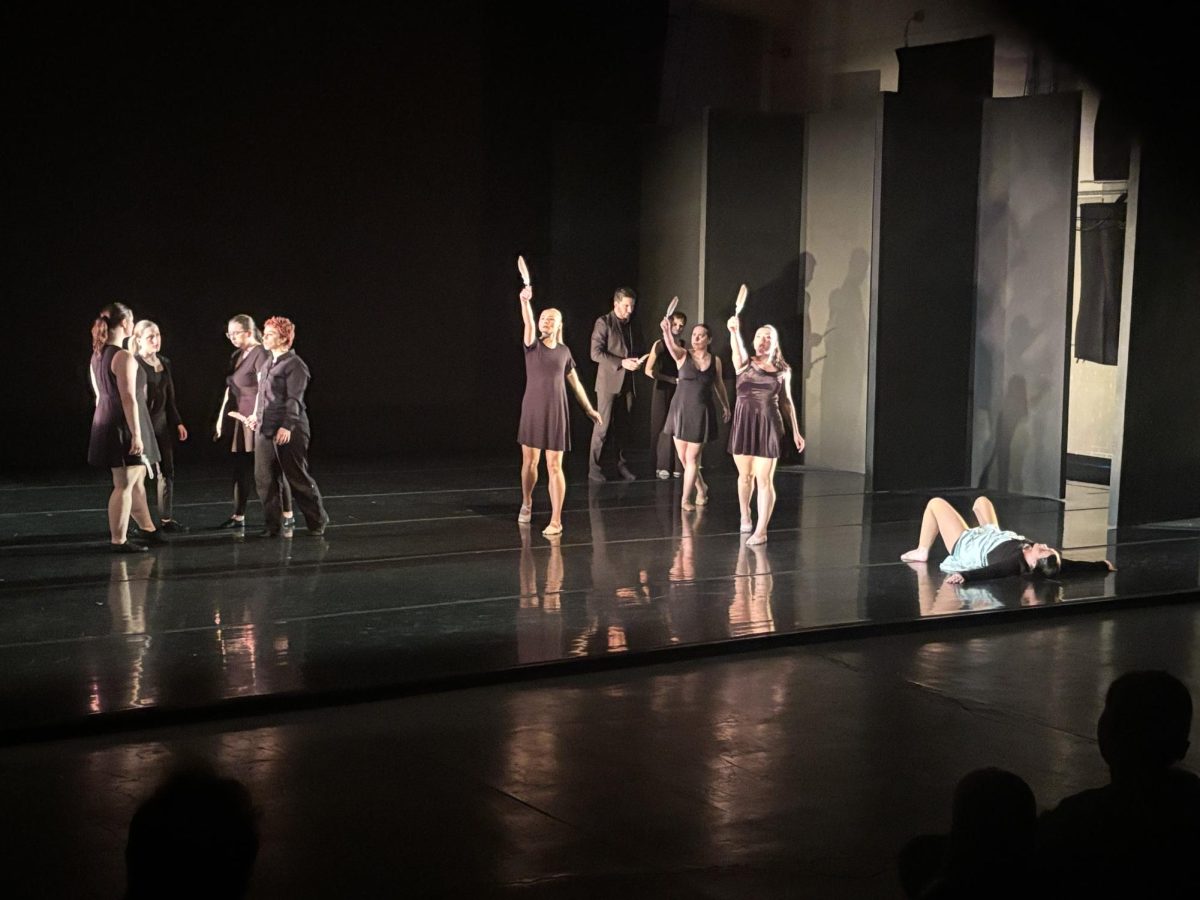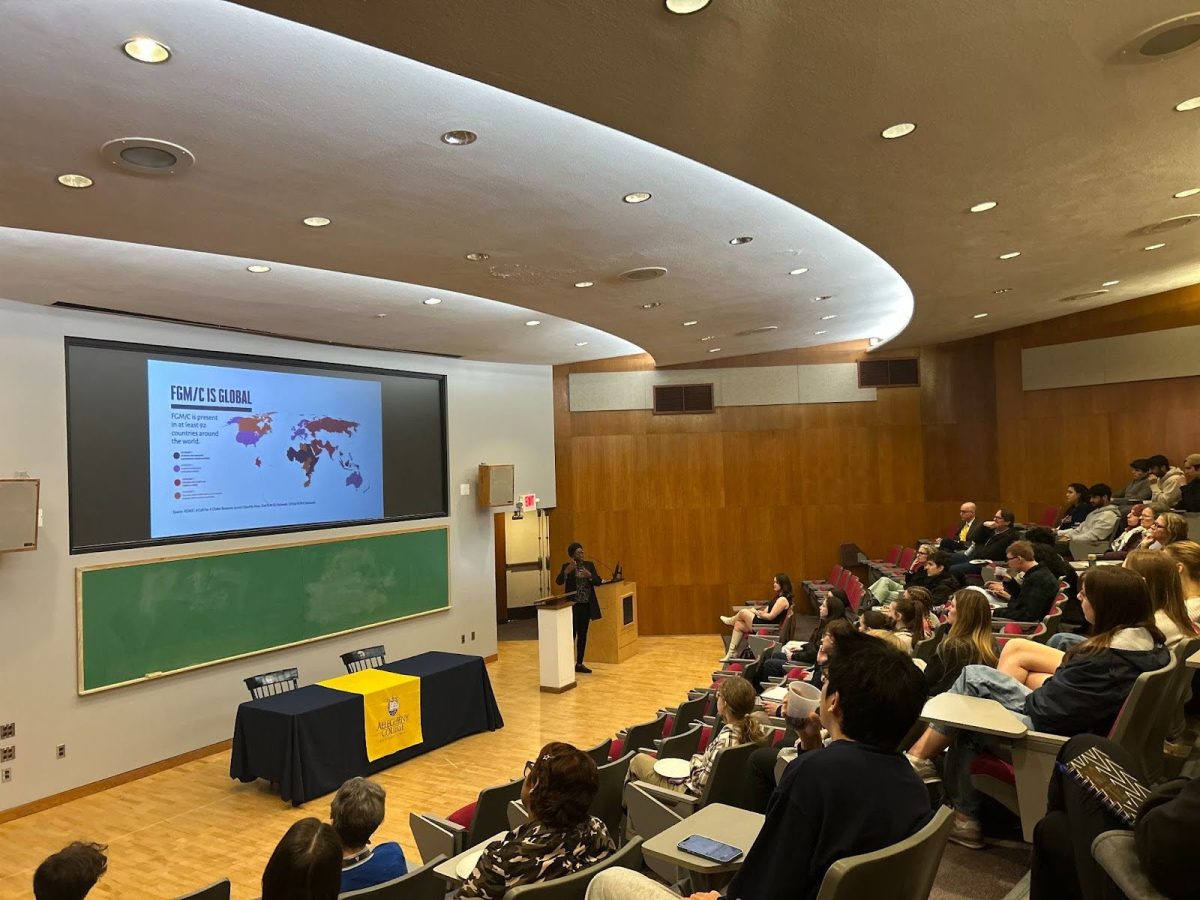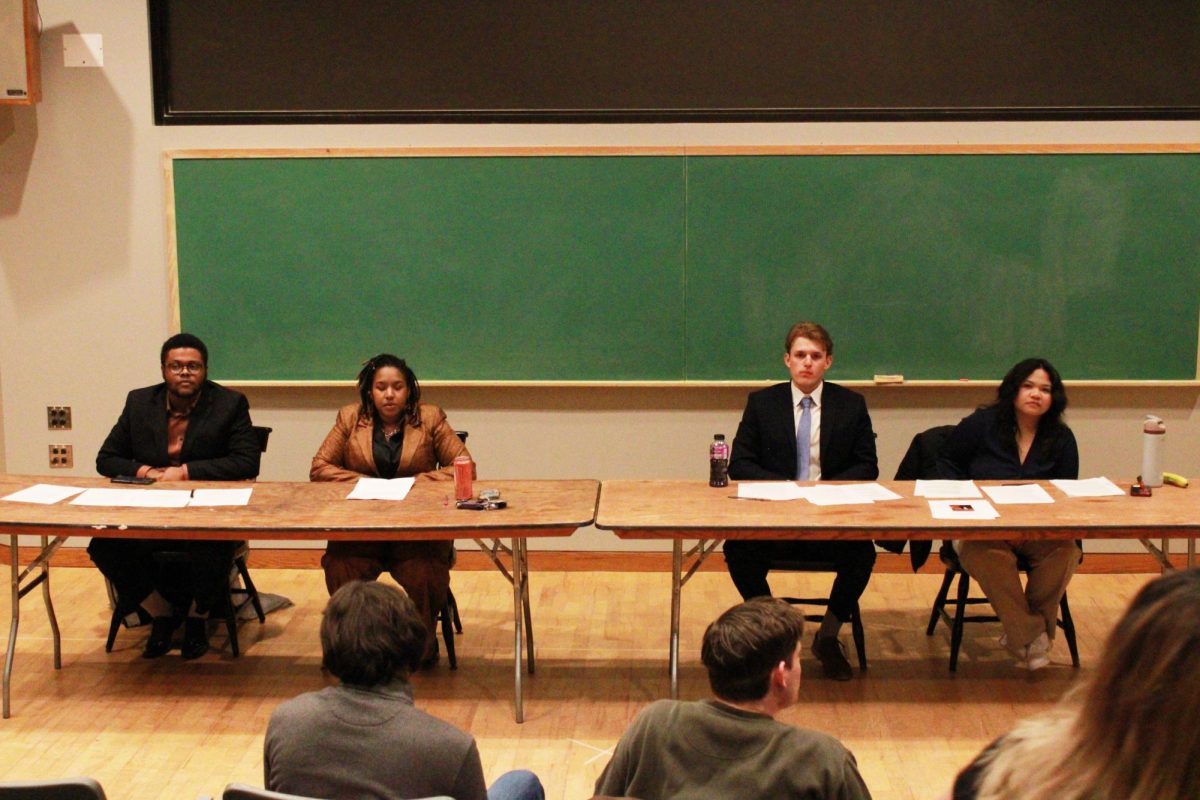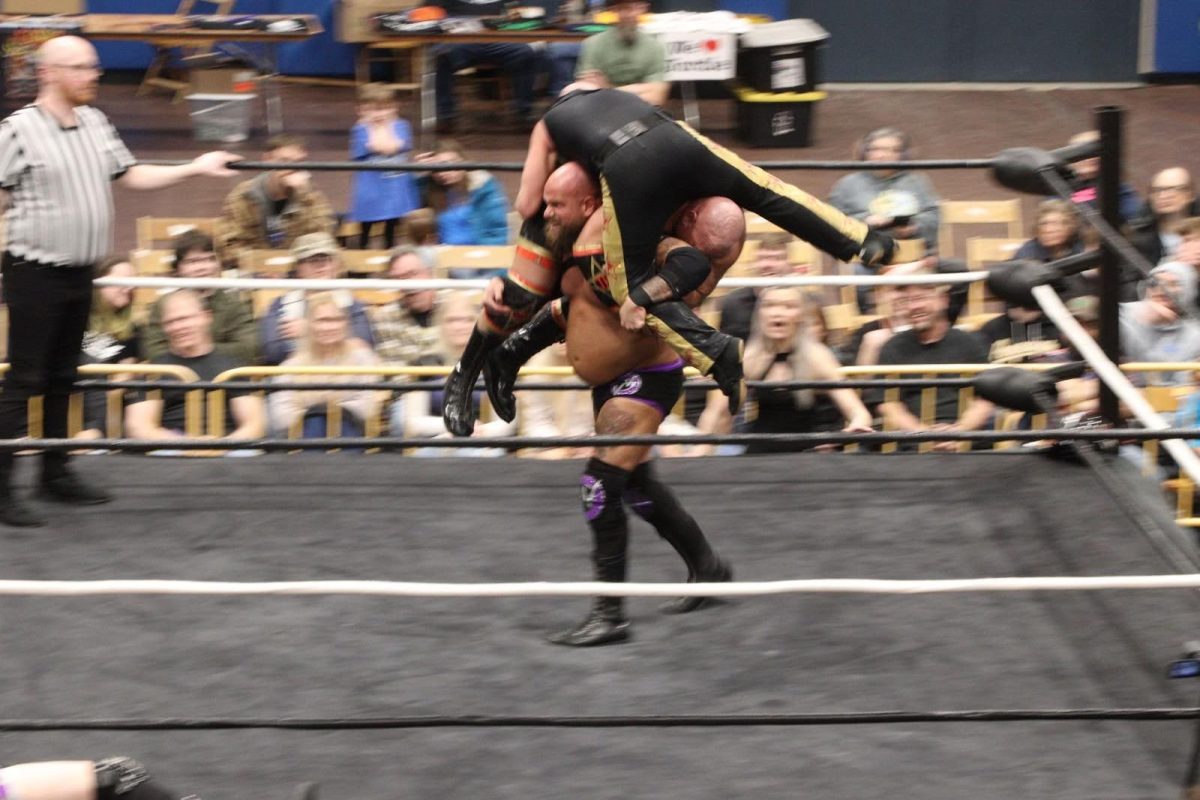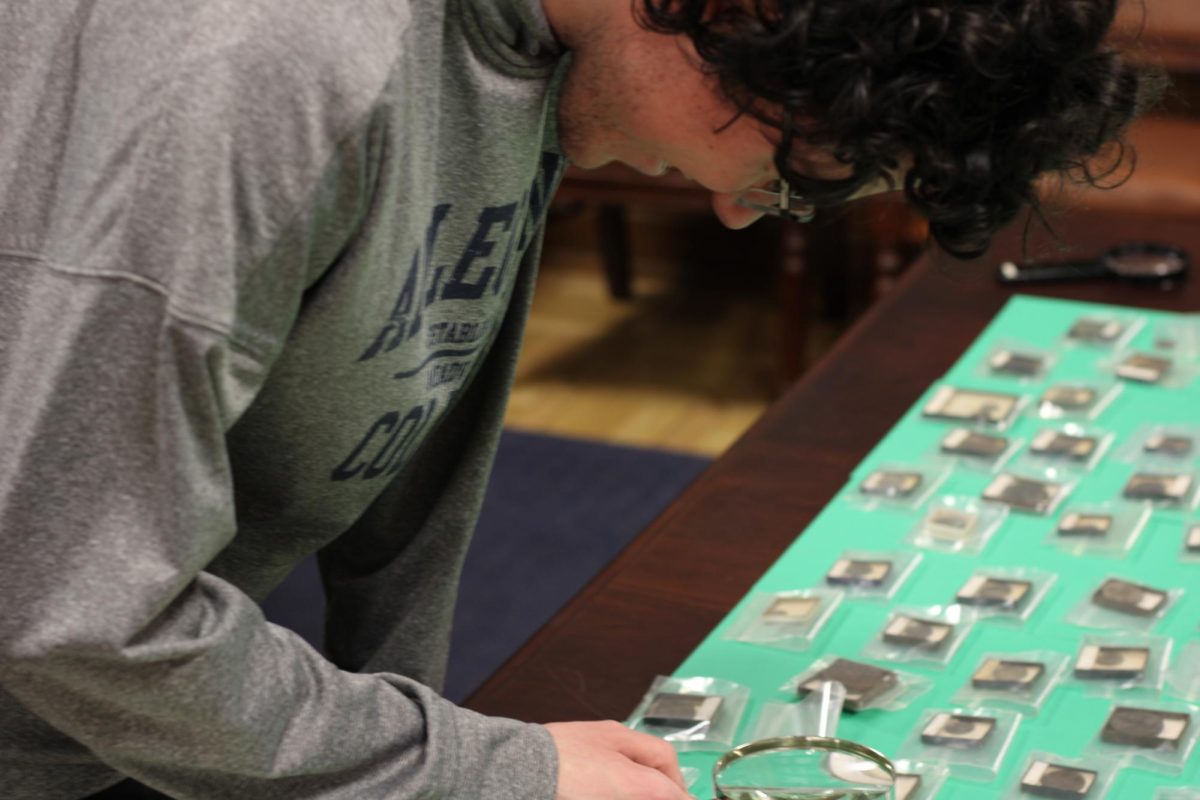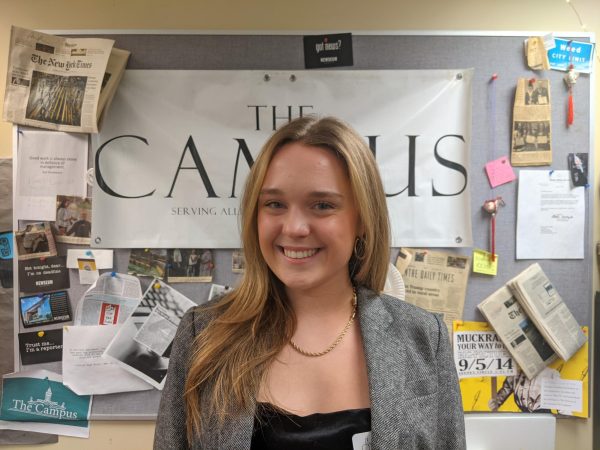Though it’s been 15 months since the overturning of Roe v. Wade, students opposed to the decision continued expressing their feelings on the issue and it seems that they are not done. Those in support of the decision also offered their thoughts.
The Supreme Court overturned the 1973 decision with a ruling in the case Dobbs v. Jackson Women’s Health Organization. According to the National Constitution Center, an American platform for constitutional education and debate, the Court stated that nowhere in the United States Constitution is there protection for a person’s right to an abortion.
Cause and effect
Upon hearing the news of the overturning, some Allegheny students have been forming more opinions and cultivating more open discussions on the topic.
Lexi Adams ’26, a political science major, is one of them.
“I think it’s the beginning of a larger attack on, like, female, reproductive rights and justice, especially for the people living in states that are extremely conservative,” Adams said of the ruling.
Adams is active with the Cleveland, Ohio chapter of Planned Parenthood, a prominent, left-leaning, provider of healthcare and sexual education, as well as other women’s movements, attending their rallies and education sessions.
The overturning has made it so that individual state governments can determine abortion rights and access within its borders. According to the Center for Reproductive Rights, a global human rights organization dedicated to the protection of reproductive rights, since the ruling, 14 states have made abortion completely illegal.
Adams, who is from Macedonia, Ohio — a state described by the CCR as “hostile” (having expressed a desire to fully ban abortion) — said that she is fearful for her home state. According to Planned Parenthood, Ohio state laws only permit abortions within six weeks of the first day of a person’s last menstrual period. There are also restrictions on such access such as informational wait periods that require multiple trips to an abortion clinic.
Pennsylvania is also considered a “hostile” state — despite having a governor that is for abortion rights — and allows abortion access through 24 weeks of pregnancy, or longer in some cases. Wait periods are necessary here as well.
Adams said she does not believe that this is as far as those in support of the overturning will go with this issue.
“I don’t think this is the end of what current parties are trying to accomplish in the name of taking these rights away,” Adams said. “I think that it’s going to lead to larger contraceptive bans…pushing the timeline back to pre-pill (birth control pill) era, which is super terrifying,”
Hitting home
Upon hearing of the possibility of the overturning, Adams followed the issue closely, as it connects to her personally. She worked as a nanny during the summer of 2022 for a mother who had struggled with miscarriages and other reproductive health issues.
“She (the mother) had an ectopic pregnancy…so it was a very, like, big discussion in that household,” said Adams.
An ectopic pregnancy occurs when a fertilized egg grows outside of the uterus, according to the American College of Obstetricians and Gynecologists.
She was on a walk with one of the children she was nannying when she learned of the overturning of Roe from the mother, who had called her.
“We had only known each other for a few months, but it was something that, like, brought us together and we were crying at the dining room table,” Adams said. “It was just like this moment of, like, unknown and uncertainty. We were scared as to what was gonna come next.”
Circumstances in which pregnancies are a risk to the pregnant person are a large topic within the conversation surrounding abortion rights. Along with this, the freedom to access abortions in a safe way, regardless of the situation is also discussed.
Madison Kermis ’25, a psychology major and global health minor from New York — a state considered to have “expanded access” for protecting the right to abortion in state law and creating additional access to abortion care, according to the CRR. She said that she still struggles to feel like she or her loved ones have such rights.
“So many of my friends…have been in the situation where it’s like, ‘I might be pregnant. I might need to get an abortion,’ and knowing that we are in a country where that’s demonized a lot already…is very sad to me because it’s bodily autonomy and now it’s a legal issue, ” Kermis said. “I’m privileged to live in a blue state where it’s still legal but I know in other places it’s just very sad to think that people have to go to an extent to get a legal and safe abortion.”
Local access
A person in Meadville is 72 miles from the nearest Bedford Heights Surgery Center in Bedford Heights, Ohio — around 94 miles by car; staying in-state, Meadville is 84 miles to Pittsburgh Abortion Services — around 91 miles by car — according to Planned Parenthood and Google Maps
“This is the government’s way of trying to control our bodies,” Kermis said. “It’s hard to feel, like, proud to be a woman or someone who has a uterus.”
Since the overturning, some states in the northern region of the country have seemed to offer more accessible reproductive health care, including abortions. Southern states tend to have less access to such services. For example, Texas’s trigger ban, a law that was set to become immediately effective in the event of Roe v. Wade’s overturning, prohibits abortion. Violators of the ban could face civil and criminal penalties.
Despite being a proud Texan, James Perez, ’27, reacted unfavorably to the state’s new abortion laws after learning more about the subject from his parents.
“I think personally it’s a little messed up…I feel like it’s not fair,” Perez said. “Everybody’s body is their body.”
Perez said the ruling robs women of their voice in the matter, but that he encourages them to take action.
“My hope is that the women in this country speak up…even more than they already have,” said Perez.
Both Adams and Kermis are doing so.
Following the ruling, Kermis spoke at a protest of the overturning that occurred on the Gator Quad in late spring 2022.
“I just kept it very short and simple. I said, ‘I’m here because I’m a woman. I’m angry. And I just want to have more rights than a gun.’” Kermis recalled, “A lot of people came out to support. People had a bunch of cardboard signs, there was chalking going on on the Gator Quad sidewalks. It was a really great turn out.”
Branching out
Another facet of the discussion surrounding the overturning and the topic of abortion-rights is access to contraceptives, sex education and reproductive health.
“I think sometimes when we go to college, higher education assumes that we had a proper sex ed. course in high school, or sometimes middle school,” Kermis said. “I think Allegheny could provide more resources to us.”
Kermis said that she knew of a women’s services center in Meadville, though she added, “I’m not entirely sure where it is or what resources they provide. I just know it’s there.
Women’s Services Inc, located at 204 Spring St. in Meadville is dedicated to helping victims of domestic and sexual violence, though their website does not provide information about abortion access.
Kermis also suggested the creation of a lecture series that clarified terms and taught about sexually transmitted diseases and ways to be safe. As an example, she pointed to a presentation that talked about common myths about sex given last spring by Why Not Us?
“I thought that was very helpful, but a lot of people saw that as just a silly little thing, so people didn’t take it very seriously,” Kermis said.
This fall, Allegheny held another presentation for the incoming class of 2027 during Orientation Week, entitled Speak About It. The annual presentation put a somewhat of a theatrical and humorous twist on sex education, though at times, tackled serious issues like sexual assault.
Campus conversations
In terms of what more Allegheny could do to support students that have been negatively affected by the overturning, Adams has some ideas, particularly pertaining to discussion of the issue, student to student.
“A lot of our students here, or at least my friends and the people I’m surrounded with, they’re on the same side of the political aisle which I appreciate. I haven’t really encountered any firm, like, pro life people,” Adams said, adding that in her opinion it is important to speak with people you might not agree with.
Tommy Landsnes, ’27, is from Virginia — a state where, according to the CRR, abortion is accessible, but not protected by law. Landsnes said that he is on the more conservative side of the issue, though when he heard about the Dobbs decision, Landsnes said he was “indifferent.”
He elaborated, saying that while attending a Catholic high school, he was taught only of instances in which, “the fetus will kill the mother…That’s kind of the only time I’ve been told like, ‘Oh, abortion’s ok’.”
Since being at Allegheny, Landsnes said that he hasn’t yet found a situation in which the topic of the overturning or abortion has been discussed.
When considering an instance where he may share his views and perhaps receive some pushback, Landses said, “I feel like I would get some (pushback), but I also don’t see much of a point to bring it up in like my day to day life…it’s just kinda, like, it doesn’t really matter to talk about… I have my beliefs and people have theirs and it’s kinda just, whatever you wanna believe, go for it.”
That environment is present at Allegheny, according to Adams.
“Everyone is respectful,” Adams said. “Professors make sure that people with opinions are able to share them freely. If there is disagreement, it happens in a respectful and open manner. It’s not like pointing fingers.”




